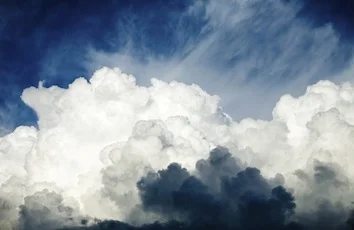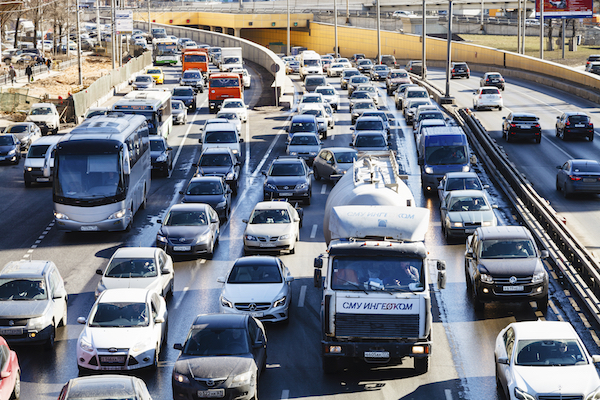Climate change means changes in the weather of a place.
They are big changes that stay for a long time.
The changes may last for ten years or millions of years.
In some places there are changes to how much rain or snow falls every year.
Global warming means the world is warmer than it used to be a hundred years ago.
Climate change
Climate change is any long-lasting important changes in a region's average weather pattern, including temperatures, rainfall and wind patterns. The changes may last for decades or millions of years.
Global Warming
Global warming refers to the increase of average temperatures since the mid 20th century.
The Greenhouse Effect
Earth, like the other planets, absorbs the Sun's rays and radiates the heat back out into space. However, there are gases in the atmosphere surrounding Earth that trap the heat and reflect it back to earth. This is like the way a greenhouse works for plants: the glass round the outside traps the sun's rays, making the inside warm even if it is cold outside. That is why the gases in Earth's atmosphere are called the greenhouse gases.
The more greenhouse gases there are in the atmosphere, the more heat is trapped. For example, Venus has too much of these gases and the planet is extremely hot with a temperature on the surface over 400 degrees C.
Of course if there are less greenhouse gases, then less heat is trapped. For example, if there weren't any greenhouse gases around Earth, it would become a frozen desert.
Greenhouse gases in balance
©iStock
There are several greenhouse gases and each has its own part to play in trapping the sun's heat. They are naturally in balance, but changes in that balance can affect Earth's temperatures. Greenhouse gas concentrations have risen and fallen naturally throughout Earth's history, causing hot and cold periods of time, such as an ice age. However, in more recent decades scientists say that the changes have resulted from human activities.
Humans have been pumping tonnes of these greenhouse gases, particularly carbon dioxide (CO2), into the atmosphere from factories, power stations, cars and planes.
Other gases are methane (CH4), and nitrous oxide (N2O). Then there are Chlorofluorocarbons (CFCs), hydrochlorofluorocarbons (HCFCs), hydrofluorocarbons (HFCs), perfluorocarbons (PFCs), and sulfur hexafluoride (SF6), which together are called F-gases, and are often used in fire extinguishers, solvents, pesticides, and as aerosol propellants.
When forests are burned more gases are released. The level of gases is growing too fast and too much heat is being trapped.
This is causing the planet to warm up and will cause major problems such as:
Seas are getting warmer and sea levels are rising because glaciers and icebergs are melting in the warmer seas.
The weather is getting wilder, with stronger and more frequent storms and floods.
In some places there are long lasting droughts which cause food crops to fail.
Global warming refers to the increase of average temperatures since the mid 20th century. It is generally agreed that the increasing greenhouse gases since the Industrial Revolution is a large factor of global warming.
©iStock
The Industrial revolution
The Industrial Revolution was the introduction of new manufacturing processes from about 1760 to sometime between 1820 and 1840. Hand production methods were replaced by machines, machine tools and the use of steam power. Coal and bio fuels (petroluem and oil) were used instead of wood to produce energy to run the machines. The mining of these fossil fuels and their use in factories all increased the output of greenhouse gases and caused pollution.
kidcyber believes that climate change is real, and that it will become a big problem for Australia's and the world's environment.
kidcyber knows that the Earth's climate has changed before, but this time we believe it is different. This time humans are causing the changes, which are bigger and happening faster than any climate changes that society has ever seen before.
kidcyber cares about the impact that climate change will have on our community, our country and the world.
Some facts:
Climate change is real. 95% of climate scientists agree that humans are causing the climate to change because of the greenhouse gases we release into the atmosphere. They say that the Earth's temperature is rising causing more droughts, wilder weather, melting of glaciers as well as warmer oceans and rising sea levels.
Australians produces more carbon pollution than people in any other developed country.
32 other countries, (New Zealand and Great Britain) already have, or are planning to have, (South Korea, India, and China) a carbon tax.
Australia doesn't have a tax on carbon. Big polluters are not being encouraged to stop or reduce their pollution by paying a tax. There is no incentive for them to use and develop more environmentally friendly production processes.
The risks from climate change will damage Australia's ecosystems and agriculture (farming) industry. The Great Barrier Reef is one Australian ecosystem that is threatened by changes in sea temperature and pollution.
Investing in clean industries such as renewable energy, solar energy, wind energy and hydro electricity will create many new jobs for people.
Read more about climate change here:
https://climatekids.nasa.gov/kids-guide-to-climate-change/
https://easyscienceforkids.com/all-about-climate-change/
https://www.ducksters.com/science/environment/global_warming.php



